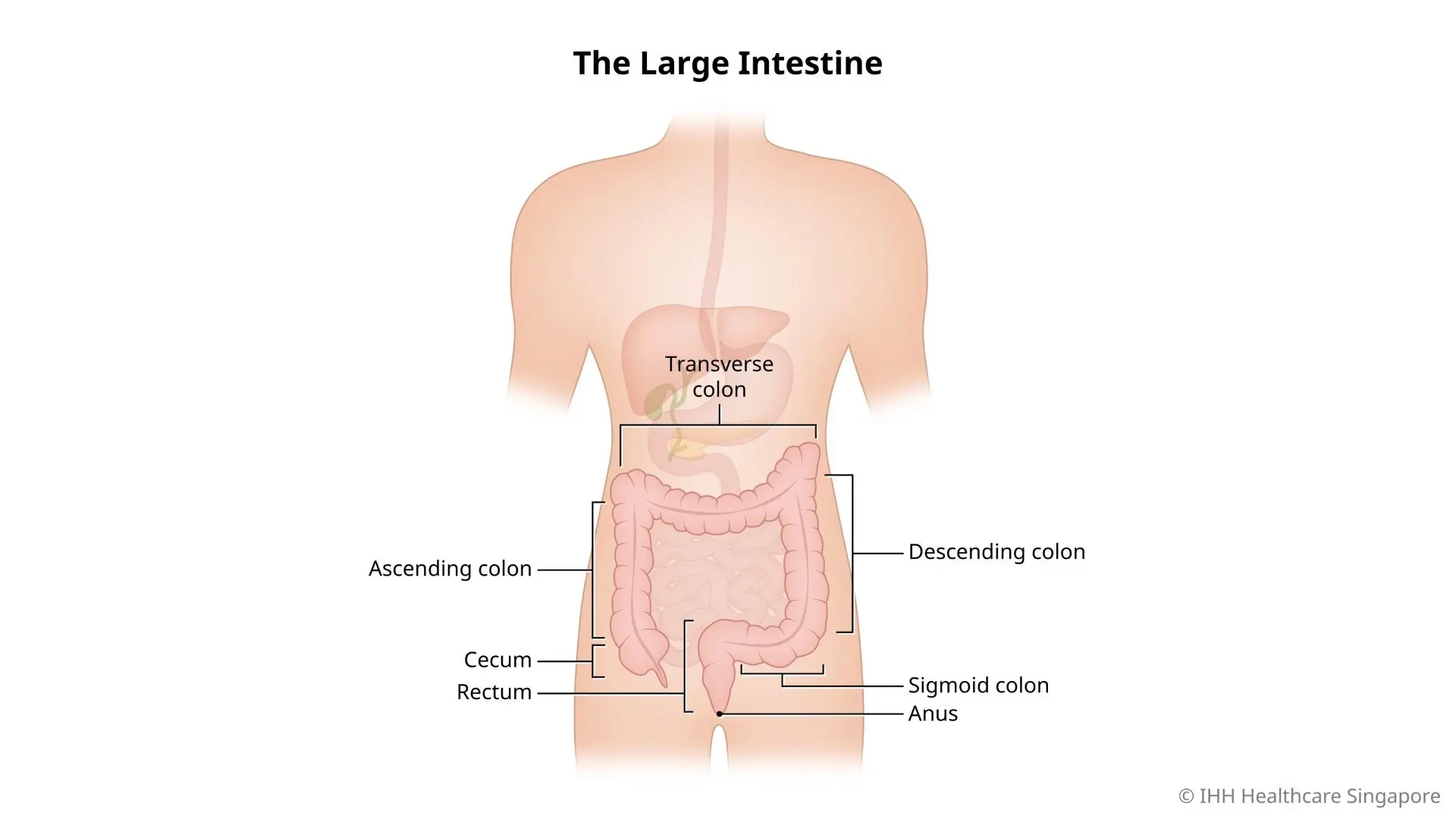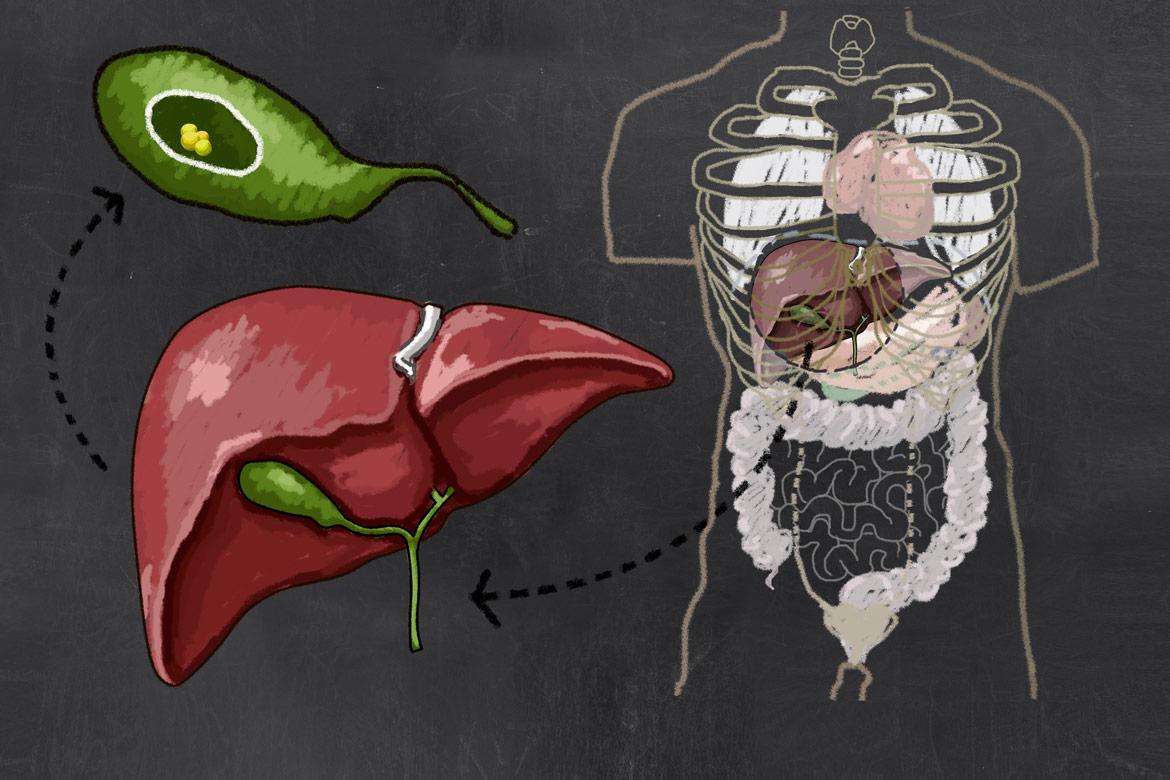What is colorectal surgery?

Colorectal surgery may be performed on the colon, rectum and anus to treat a variety of conditions.
The colon is the longest part of the large intestine and the rectum is the passageway connecting the colon to the anus.
How it works
Minimally invasive surgery (MIS) is the most commonly used procedure in colorectal surgery. It includes both laparoscopic (keyhole) and robotic surgery.
During MIS, your surgeon will:
- Make 3 – 4 tiny buttonhole incisions on your abdomen
- Insert laparoscopic instruments and use advanced imaging guidance to treat your condition.
After the procedure, your surgeon will stitch up your incisions, leaving minimal visible scarring.
If you are not suitable for MIS, your doctor may recommend open surgery instead.
Why do you need colorectal surgery?
Colorectal surgery can be used to treat benign (non-cancerous) and malignant (cancerous) conditions.
Your doctor may recommend colorectal surgery if you have:
- Incontinence
- Polyps (non-cancerous growths)
- Inflammatory bowel diseases such as Crohn’s disease and ulcerative colitis
- Anal conditions such as haemorrhoids (piles), anal fistulas and fissures.
Who should not undergo minimally invasive colorectal surgery?
Minimally invasive colorectal surgery may not be suitable if you have:
- Had abdominal surgeries before
- Very large lesions (tissue damage)
- Severe cardio-respiratory (heart and lung) conditions
Depending on your condition, your doctor may recommend open surgery instead.
What are the risks and complications of colorectal surgery?
Your risk of complications depends on your general health and the type of surgery performed. Like other major surgeries, colorectal surgery is associated with the following risks:
- Infection
- Bleeding
- Blood clots
- Complications from general anaesthesia
- Damage to nearby organs
In the hands of an experienced surgeon, these complications are rare.
How do you prepare for colorectal surgery?
To ensure that it is safe for you to undergo colorectal surgery, your doctor may recommend the following tests:
Once your colorectal surgery is scheduled, your doctor will advise you on how to prepare. For example, you may need to prepare your bowels and cleanse your colon before the operation. This may involve enemas or laxatives, and a clear liquid diet.
Note: If you are taking any medication or herbal supplements, you should inform your doctor. You may need to adjust or stop taking some medication before the procedure (e.g. aspirin, blood thinners).
What can you expect in colorectal surgery?
Both minimally invasive and open colorectal surgeries are performed under general anaesthesia.
Before the procedure
Both minimally invasive and open surgeries are performed under general anaesthesia. You will receive general anaesthesia through an intravenous line inserted into one of your veins. You will sleep through the procedure and not feel any pain.
During the procedure
If you are undergoing minimally invasive surgery, your surgeon will:
- Make an incision to insert a small tube into your abdomen
- Inflate your abdomen with carbon dioxide gas to create a working space and see inside your abdomen more clearly.
- Insert a camera through the incision to display images on a screen in real-time
- (Depending on the aim of the surgery) Make 2 – 3 more incisions to insert other instruments.
- Remove the instruments and close the incisions with stitches or surgical tape when the procedure is completed
If you are undergoing open surgery, your surgeon will:
- Make a large incision in the abdomen to perform the procedure
- Remove the instruments and close the incisions with stitches or surgical tape when the procedure is completed
Care and recovery after colorectal surgery
If you had major colorectal surgery, you may need to stay for 4 – 7 days before you can leave the hospital. This applies whether you had open surgery or minimally invasive surgery.
In the days after surgery, you may feel moderate pain at the incision site. Your doctor will prescribe pain-killers to relieve the pain.
You may also have shoulder pain or feel bloated due to the carbon dioxide gas used to inflate your abdomen. These symptoms should disappear after a few days.











